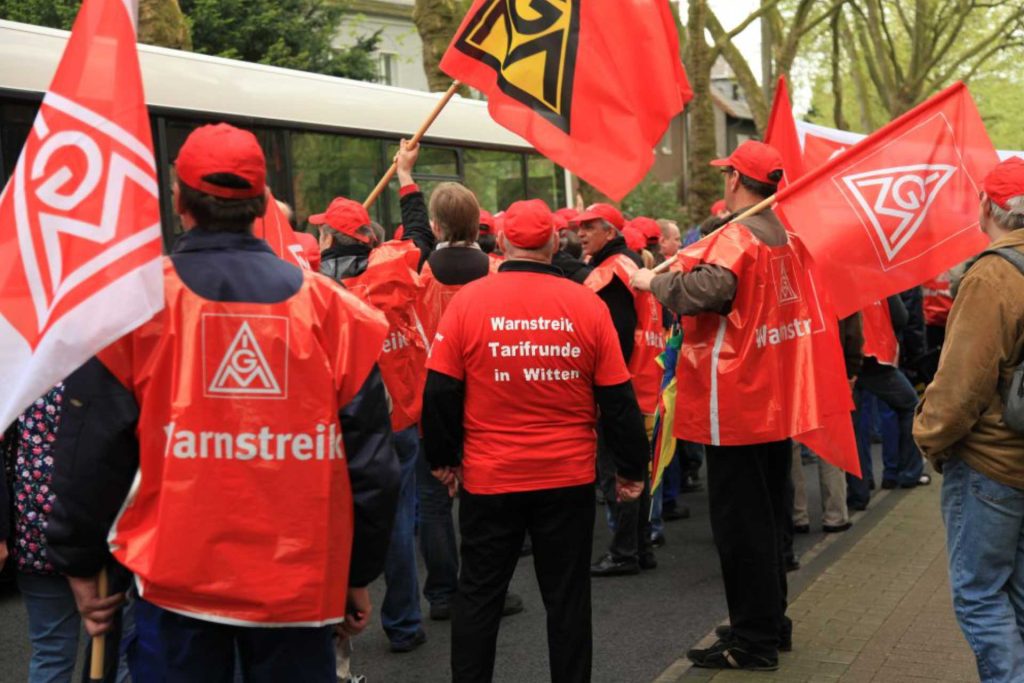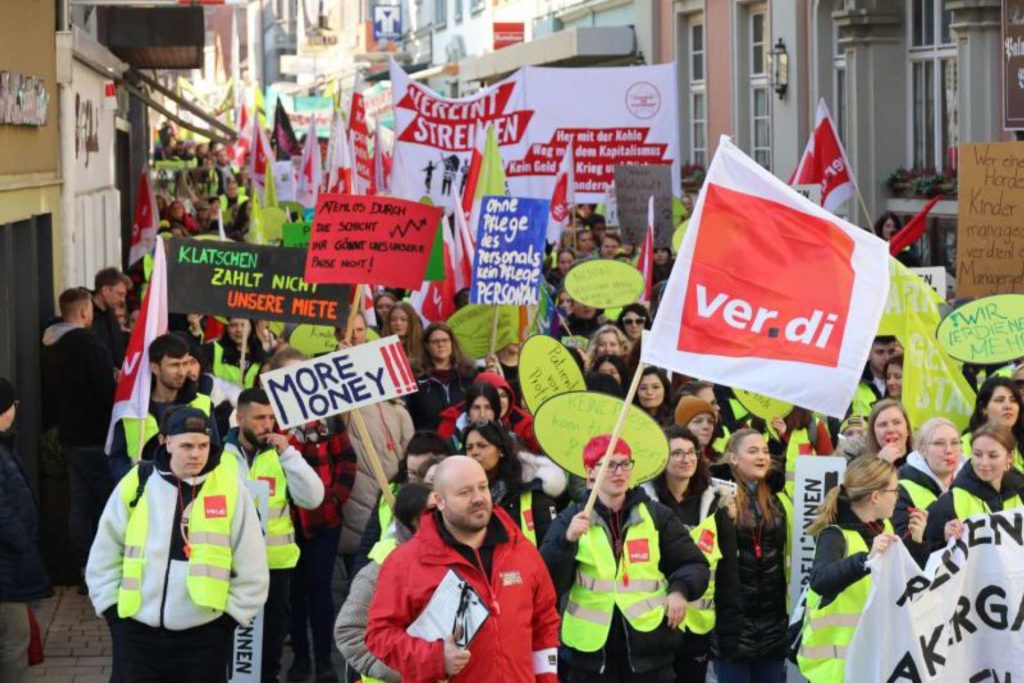Germany Transport Workers Strike: Common Will
The collective will model can also be referred to as the “worker participation” model. Germany took the first significant steps towards workers’ rights at the end of the First World War with the Stinnes-Legien Agreement. This agreement was one of the first steps towards “collective will” and included the Supervisory Board Act of 1922 (Aufsichtsratgesetz 1922), which legalized collective bargaining.
The strike of transport workers in Germany, which will take effect on March 27 in the states of Hesse, North Rhine-Westphalia, Baden-Württemberg, Saxony, Lower Saxony and Rhineland-Palatinate in the form of public transport shutdowns, has made a great impact. According to the German press, the strike of transport workers, which was reflected as the biggest strike in the last 31 years, resulted in the support of the service union Ver.di and the railway and transport union (EVG), and employees went on strike in 6 states. In early March, Frank Werneke of the United Services Union, one of Germany’s largest unions, warned that a warning strike was necessary and that strikes would continue if no results were achieved.
The collective will model can also be referred to as the “worker participation” model. Germany took the first significant steps towards workers’ rights at the end of the First World War with the Stinnes-Legien Agreement. This agreement was one of the first steps towards “Collective Will” and included the Supervisory Board Act of 1922 (Aufsichtsratgesetz 1922), which legalized collective bargaining. This model of “Collective Will”, which stagnated and declined under Adolf Hitler, laid the foundations for today’s laws with the Common Will Act (Mitbestimmungsgesetz) of 1976 and the Betriebsverfassungsgesetz (Betriebsverfassungsgesetz) of 1972.

One of the main reasons why this strike, in which bus drivers, rail workers and many other public transport workers are taking part, has made a big impact is the involvement of global warming and climate change activists. Climate activists, who advocate for cheaper public transport and for people to switch from private cars to public transport, had announced since the beginning of March that they would actively participate in the action on March 27.
Stating that the inflation rate in Germany was +8.7% in February 2023, Ruth Brand, Head of the Federal Statistical Office (Destatis), said, “The inflation rate remains high.” Citing rising inflation, Ver.di demanded a salary increase of more than 10%. Deutsche Bahn, on the other hand, did not accept such a salary increase in the first two rounds, arguing that the perceived inflation rate was not that high and that these strikes were unnecessary. I believe that the reason why the March 27th strike, which was referred to in the press as “the biggest strike in 31 years”, was called such a big strike was because the head of the Ver.di union warned that the protests would continue if the demand for a wage increase was not accepted in the third round.
Deutsche Bahn stated that salary increases of more than 10% would also lead to an increase in transportation fares. This raises the question of whether the interests of climate activists and striking workers might clash.

The 24-hour work stoppage by bus and rail drivers had many consequences. In the morning hours alone, seven flights to Cologne, Düsseldorf, Munich, Nuremberg, Frankfurt, Hanover and Bremen were canceled. “Companies like Pegasus and Turkish airlines suspended flights for a day. After public transportation was completely frozen for a day, people turned to their private cars, but there was no traffic chaos as expected in previous days. German media attributed this to measures taken after the strike was announced by Ver.di three days in advance. The Cologne-East intersection and Hamburg were among the areas where traffic flowed smoothly thanks to the measures, while areas such as the Heidelberger Kreuz experienced traffic jams due to limited measures. In a way, this foreshadowed climate activists’ warnings about the impact on social life and global warming of not turning to private cars in the face of rising public transport prices.
At a time when strikes against the pension reform are going on in France, the transportation strike in Germany was reported in the French press as follows: “If France is used to this, Germany is less used to social movements that can paralyze the whole country.” The French press attributed the fact that the strike, which did not have as big an impact as expected, was headlined as “the biggest strike in 31 years” to the fact that Germany is not used to such social movements. Moreover, the strikes in the UK, which have been going on for months to improve wages and working conditions, and the strikes in France and Germany, which have escalated at the same time, have had a major impact through the unification of unions.
Efsa Demirhan
Koç University




Comments